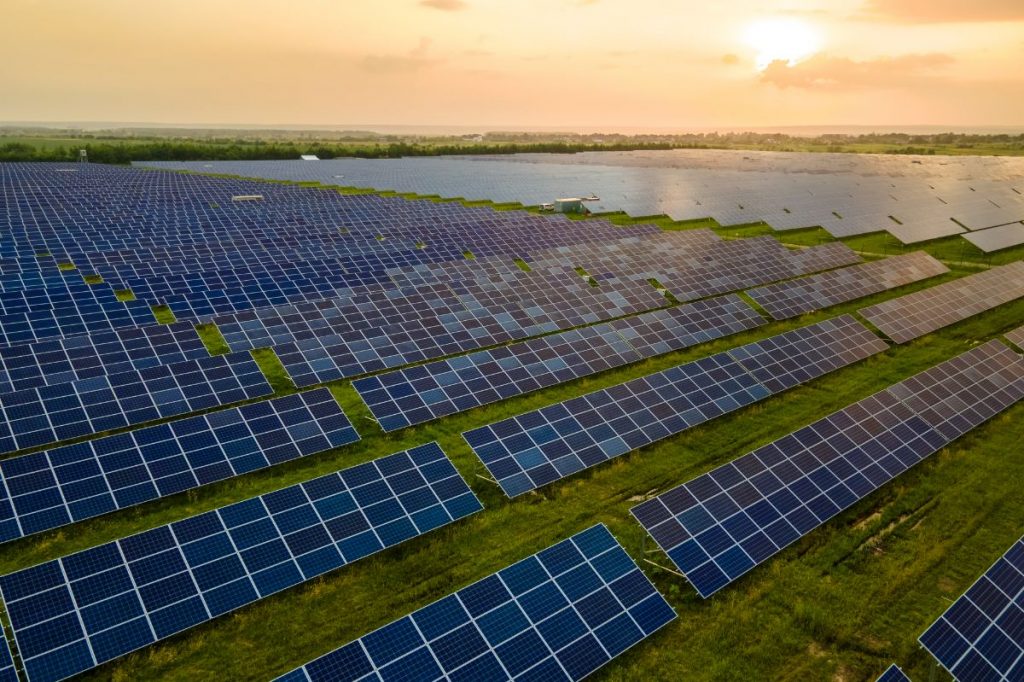
Sustainability in the Philippines is more than just being “green” and being “in.” Across the globe, companies are realizing that sustainability is a serious matter and has to be integrated into their business operations.
The Philippines’ geographical location makes it vulnerable to the consequences of climate change. Natural disasters such as typhoons, which are believed to be directly connected to global warming, affect human lives and disrupt economies. Beyond the environmental reform that sustainability can bring, it is key to ensuring that Filipinos will have a secure, safe, worry-free future.
With the call for sustainable companies in the Philippines getting louder, how can organizations direct their efforts toward helping create a more sustainable country? Let’s find out how.
As you go through each point, ask yourself, “How can we espouse sustainability in my company?”

There is a greater push for mandatory sustainability policies and reports among businesses in the country. And more than ink on paper, these claims have to be substantiated by demonstrating progress on various sustainability issues.
In general, the trend in Philippine business sustainability has been focused on reducing environmental impact and preserving natural resources — particularly among corporations involved in large-scale production. Many companies launch tree-planting and adopt renewable energy initiatives. However, the call for sustainability goes beyond the environmental aspect as it also includes social and governance concerns.
It is a challenging time due to COVID-19, yet now more than ever, efforts toward sustainability have accelerated across the country. Our resilience can be seen in the increase of our Environmental, Social, and Governance (ESG) initiatives.
Within the last year, 30% of surveyed CEOs in the Philippines plan to incorporate ESG goals in their business plans, while 43% have affirmed that their organizations were actively measuring and reporting on the impacts of their current ESG, according to the PwC M.A.P. CEO Survey 2022.
At Aboitiz, our strategic directions are geared toward sustainability from the get-go. Since our humble beginnings, we have understood that a sustainable future is only certain when it is anchored on consistency. That’s why sustainability has been ingrained in the way we do things in Aboitiz. We are optimistic that our strong ESG proposition will continue to provide Filipinos with the sustainable future they truly deserve.
Our mission is to provide long-term value for our stakeholders, including our host communities and customers. Statistics show that sustainability practices earn companies brownie points and are important to consumers.
Let’s face it — maintaining sustainability initiatives and producing meaningful reports are easier said than done. It requires collecting accurate and honest information and making the best use of it. It is rare to read a report that truly reflects progress all year round.
It can be tempting for businesses to set aside this complex agenda and carry on doing only what needs to be done for the sake of compliance. But doing so would actually result in little to no value creation in the long term.
Putting ESG principles into action is ultimately about setting the foundation for one’s long-term strategic position. With sustainability at the core of your business operations, your organization can better adapt to new risks and opportunities — all while adeptly managing the impacts of growth that satisfy the triple bottom line.
Companies in the Philippines must inculcate sustainability at the heart of their strategy. Ideally, this should push them to generate solutions for urgent problems in the country, and contribute to the United Nations Sustainable Development Goals (UN SDG) as a whole.

While the world is still in survival mode following a global health crisis, now is the time to amplify sustainability initiatives to thrive in the so-called new normal.
How can Philippine businesses step up to this challenge? ? Here are a few ways that organizations can follow to move toward meaningful societal change.
Developing a strategy from the ground up is the most basic step toward sustainable business practices. Otherwise, your business will merely stay reactive to ESG issues — which will cost you more in the long run.
Having an authentic strategy that articulates your promise toward inclusive, sustainable development is what will guide your business as you chart the way forward.
It will also help your business manage stakeholders’ expectations. The commitments that you have articulated in your strategy are what investors and consumers are looking for.
Your strategy should articulate both your ambition and aspiration by setting achievable targets. Therefore, it’s important to decide the ‘why’ and the ‘hows’ of your goals.
For instance, one of our priority areas in the Aboitiz Group is to provide access to quality education. To pursue this goal, we work with various training and educational institutions, the Department of Education, local government units, and like-minded organizations to set up projects that provide resources and assistance to communities in need.
One of our recent efforts that are aligned with SDG 4 ‘Quality Education’ is the new two-story school building that AboitizPower donated to support the resumption of in-person learning in Pampanga. This project, among many others, was designed to empower students with quality classrooms and facilities as they move past the challenges of online learning.
Our sustainability strategy sets these projects to demonstrate our progress toward our key goals over time.
In a rapidly changing environment, it is no longer possible for businesses to be unconcerned about ESG issues.
For example, businesses cannot say it practices ethical waste management if it only donates leftover food to food drives — while ignoring problems in production, logistics, and packaging that are the source of the wastage.
In this case, managing ESG risks means practicing transparency and accountability in all steps of production and service delivery. It involves disclosing all efforts taken to mitigate such risks.
So how can your business shift from picking and choosing ESG challenges to approaching them comprehensively? How can you do it while surviving the scrutiny of stakeholders?
Here, investing in a routine materiality assessment is key. Furthermore, if certain ESG issues are business-critical, they should also surface in your risk register. One can also integrate ESG concerns into the Board of Directors’ agenda.
This last step will ensure that relevant issues make it to the Board’s agenda, and get the appropriate attention and resources to tackle them at the core. Luckily, mainstreaming ESG in this way simply means revisiting it in the same risk management processes that your company goes through every year.
Viewing these risks through this lens will eventually lead to identifying opportunities, which will also eventually lead to exploring new models of value creation that will help your company stand out from the rest.
The most prevailing challenge in embracing the sustainability journey is the lack of executive leadership and governance.
As we mentioned earlier, it’s not enough to make risk assessments, and a sound strategy — an empowering tone from the top is needed to sow the seeds of progress. This is why we advise sustainability to be included in your Board of Directors’ agenda.
This senior-level ownership, backed by a sound governance system, will dictate how resources and efforts are put into these initiatives. Additionally, this support and accountability will help plant sustainability at every level of the business.
At the same time, leadership must encourage silos to be built across teams, subsidiaries, and other arms of the business. Adding it to everyone’s agenda and cascading ESG initiatives indicates a long-term view of sustainability in the organization.
As part of our vision to become a trustworthy partner in nation-building, we established a social development arm or a corporate foundation — Aboitiz Foundation (AFI). The Foundation is the orchestrator of a dynamic and interdependent Aboitiz Corporate Social Responsibility (CSR) ecosystem, which prioritizes the social and economic development needs of marginalized members of society. Read more about how we help such causes here.
Recent years have highlighted the urgency of the climate and economic crises — especially in Third World countries such as ours.
With such issues on our hands, collective action from the private sector is required, and sustainable companies in the Philippines need to pioneer ESG initiatives and motivate others to go beyond being ‘green’ and look at societal needs.
Heeding this call, we in the Aboitiz Group remain steadfast in our promise to co-create a better world for Filipinos. Today, we are humbled and grateful to celebrate hard-earned wins while continuously driving change for a better world. While we are thankful to have been given the privilege to help thousands of communities, there is still plenty of work to be done. We remain committed to developing empowered and sustainable communities.
To become a truly sustainable Philippine company that can be entrusted to future generations, we hold ourselves at the forefront of the much-needed transformations to improve the way we do business and positively impact our communities. For the results of our projects, click here.